
Symptoms of Poisoning in Your Cats. Cleaners, fertilizers, medication and household plants can all poison a cat. Cats can also be poisoned by rodent-killing chemicals--either by ingesting them or from a poisoned rat or mouse they catch. In fact, poisons do not even need to be ingested--certain poisons picked up on a cat's fur or paws can be absorbed into the bloodstream.
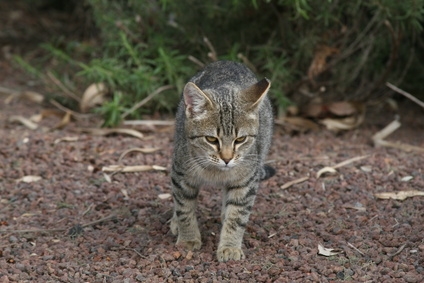
Different poisons cause different symptoms. Seek immediate veterinary attention for any sudden change in behavior or illness. Sudden digestive problems are one of the biggest indicators of poisoning. If a cat begins to vomit, or has diarrhea or blood in its feces, it may have been poisoned. If it begins to drool uncontrollably or foams at the mouth, staggers, cries, trembles or has any swelling (of the tongue especially but anywhere on the body), you should suspect poisoning. The cat may also be agitated or lethargic. Bring the cat to a vet as soon as possible as it may also begin to have convulsions or fall into a coma.
If you know what the cat has ingested, you can try to remedy the poisoning before you bring it to a veterinarian. For non-corrosive poisons, induce vomiting by giving the cat a heaped teaspoon of salt in a small amount of warm water or a tablespoon of mustard powder in a cup of warm water. Repeat every 10 minutes until the cat vomits. Do not do this if you believe the cat has ingested a corrosive poison (household cleaners or drain cleaners), or if you do not know what it has ingested, since corrosive poisons can burn the stomach and throat again on the way back up. If you know that the cat has ingested corrosive materials, rinse out its mouth with water and then feed it two teaspoons of vegetable oil. If you are in any doubt, phone the ASPCA's poison line at 888-426-4435 immediately. But if you suspect that the cat has been poisoned before it begins to show symptoms, bring it to a vet immediately.
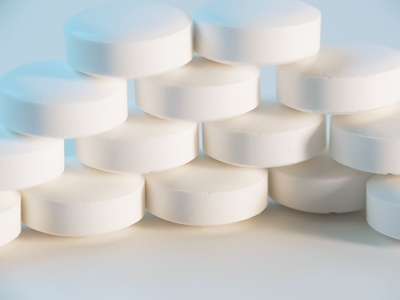
Many household and outdoor plants are toxic to cats. These include (but are not limited to) daffodils, poinsettias, chrysanthemums, azaleas, birds of paradise, spider mums and various varieties of ivy. Batteries, lead and zinc are toxic, as are caffeine and chocolate. Human medication may also be toxic to cats. Slug pellets and rodent killers can be lethal. Destroy any medication that is not needed and keep cats away from plants. Consider killing slugs with beer and rodents with traps instead of poison.
 The Best Pet Rodents
The Best Pet Rodents
The Best Pet Rode
The Best Pet Rodents
The Best Pet Rodents
The Best Pet Rode
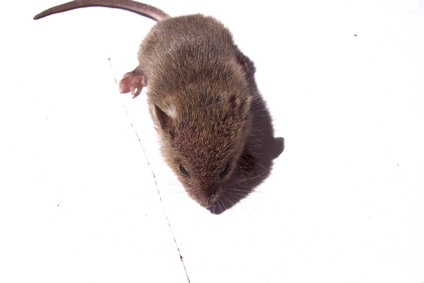 How to Get Rid of Rats and Mice Without Harming Pets
How to Get Rid of Rats and Mice Without Harmin
How to Get Rid of Rats and Mice Without Harming Pets
How to Get Rid of Rats and Mice Without Harmin
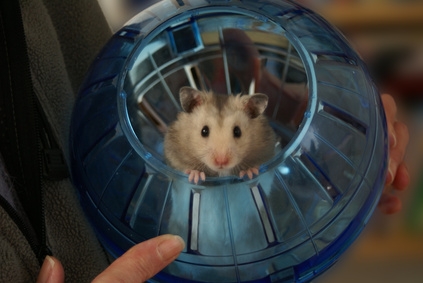 Types of Pet Rodents
Types of Pet Rodents
Types of Pet Rode
Types of Pet Rodents
Types of Pet Rodents
Types of Pet Rode
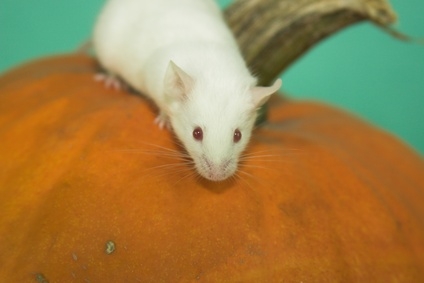 Rabies Symptoms in Pet Mice
Rabies Symptoms in Pet Mice
Rabies Sym
Rabies Symptoms in Pet Mice
Rabies Symptoms in Pet Mice
Rabies Sym
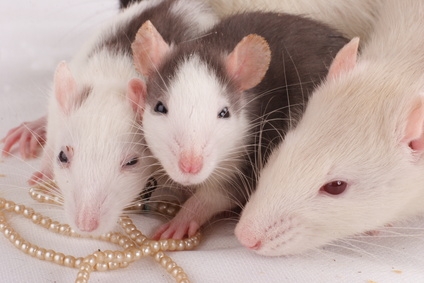 List of Pet Rodents
List of Pet Rodents
List of Pet Rodent
List of Pet Rodents
List of Pet Rodents
List of Pet Rodent
Copyright © 2005-2016 Pet Information All Rights Reserved
Contact us: www162date@outlook.com